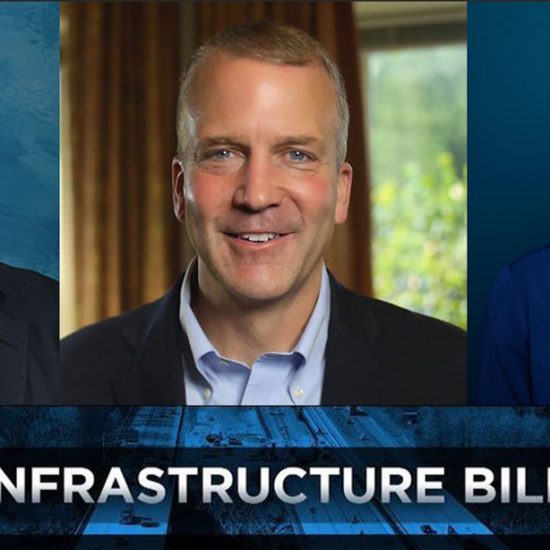Fred Fleitz — On June 11, the Middle East Media Research Institute (MEMRI) released a report on a stunning new concession offered by the Obama administration to break a deadlock in the Iran nuclear talks.
The deadlock stems from Tehran’s refusal to permit inspections of military facilities or answer questions about past nuclear-weapons-related work (known as “possible military dimensions” or PMD in U.N.-speak). With the clock ticking down on a June 30 deadline for a nuclear agreement, the refusal of Iranian leaders to budge on these issues has become a political problem for President Obama, who said in April that Iran has agreed to “the most robust and intrusive inspections and transparency regime ever negotiated for any nuclear program in history.” Deputy National Security Adviser Ben Rhodes has said the nuclear agreement will allow “anytime, anywhere inspections of any and every Iranian facility.”
Several U.S. organizations, including the Center for Security Policy (my employer), the American Israel Public Affairs Committee (AIPAC), the Jewish Institute for National Security Affairs (JINSA), and the bipartisan Iran Task Force, have made anytime, anyplace inspections and resolving PMD questions red lines for a nuclear agreement with Iran. French foreign minister Laurent Fabius said late last month that France will not sign off on a nuclear deal if Tehran rules out inspections of military sites.
According to the MEMRI report, the Obama administration proposed the following to resolve the deadlock over inspections of Iranian military facilities, undeclared nuclear sites, and past nuclear-weapons-related work:
- The United States has proposed to close the International Atomic Energy Agency’s PMD dossier and forgo actual IAEA inspections of suspect Iranian nuclear facilities.
- Instead, the IAEA would conduct token inspections of a handful of nuclear sites — including two military sites — and question several senior Iranian military officials.
- Inspections of Iranian nuclear sites after the token inspections would be limited to declared facilities.
- Undeclared and suspect nuclear-weapons sites would be monitored through intelligence means.
MEMRI, a well-regarded think tank in Washington, D.C., sourced its report to statements cited in the Iranian press from Abbas Araghchi, Iran’s deputy foreign minister and head nuclear negotiator, and Hamid Baidinejad, another Iranian nuclear negotiator. Araghchi reportedly said the Iranian negotiating team agreed to the proposed U.S. concession, but the plan was subsequently rejected by Supreme Leader Khamenei and triggered harsh criticism of Iranian officials in the so-called pragmatic camp. Baidinejad claimed the Iranian negotiating team rejected the proposed U.S. concession but agreed to an American request to present it to Khamenei anyway, who rejected it outright.
MEMRI believes CIA director John Brennan was secretly dispatched to Israel in early June to convince Israeli officials (and EU officials via Israel) that intelligence monitoring of PMD-related sites was sufficient, and actual investigation of these sites could be waived. My guess is that Israeli officials reacted to Brennan’s presentation with laughter and derision.
This proposed U.S. concession is appalling, because it would allow Iran to shield military and undeclared sites from IAEA inspectors. Obviously, if Iran is engaged in nuclear-weapons work, the work is not being conducted at declared sites. Given the poor track record of U.S. intelligence agencies in discovering covert nuclear facilities in Iran and North Korea, the idea that intelligence is an adequate replacement for inspections of military and suspect nuclear sites is absurd.
Iran agreed in late 2013 to resolve an IAEA list of PMD-related issues in twelve areas. Iran has resolved questions in only one of these and is refusing to address the rest. Resolving questions about past Iranian nuclear-weapons work is important to set a baseline for verification, since IAEA inspectors need to know what nuclear research Iran has been engaged in and where this work has been conducted. Closing the IAEA’s PMD dossier would seriously undermine efforts to verify a nuclear agreement and would be another instance of Iran getting a pass for cheating on international agreements.
I’ve written previously in NRO that in their desperation to get a nuclear deal with Iran, which they hope will bolster the legacy of the Obama presidency, Obama officials are pursuing a policy of containment of an Iranian nuclear bomb. President Obama has in effect decided to concede the nuclear bomb to Tehran. In such a context, the latest proposed Obama-administration concession to Iran makes sense. Since the nuclear agreement is all about the Obama legacy, and not about stopping or slowing Iran’s nuclear-weapons program, Obama officials will make almost any concession to Iran to get a deal. Iranian leaders know this and are holding out for further and more generous U.S. concessions.
Congress must put a stop to this madness. If a nuclear agreement is concluded with Iran, Congress must reject it on a bipartisan basis. Congress also must restore a responsible U.S. foreign policy on Iran by passing new sanctions requiring Iran to comply with all U.N. Security Council resolutions on its nuclear program.
— Fred Fleitz is senior vice president for policy and programs for the Center for Security Policy. He worked in national-security positions for 25 years with the CIA, the State Department, and the House Intelligence Committee. Follow him on Twitter @fredfleitz.











